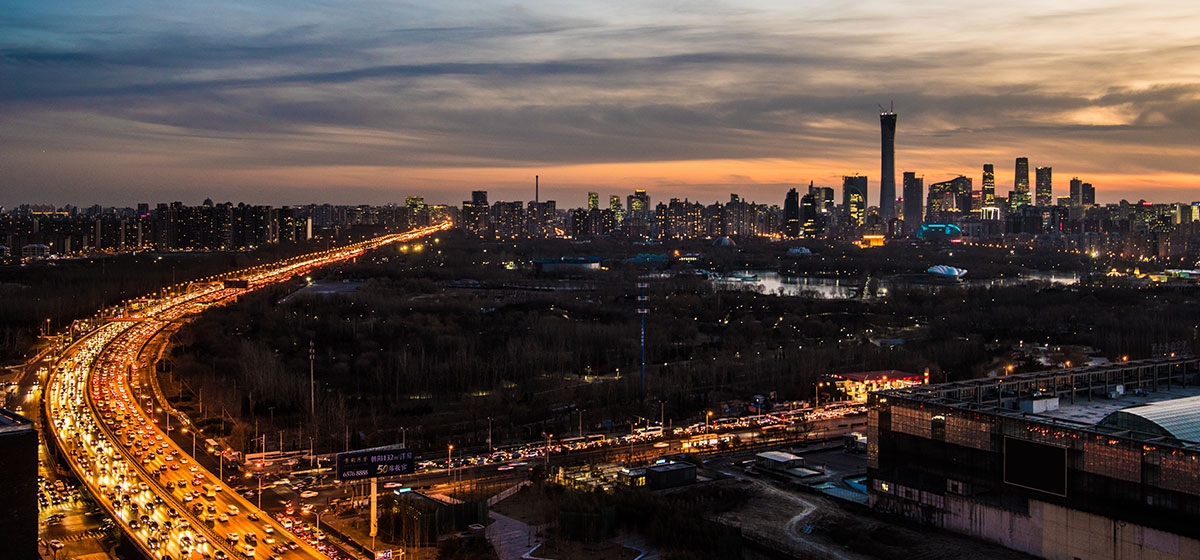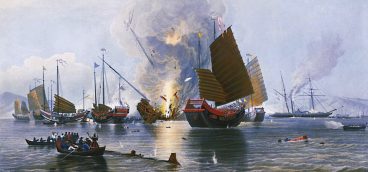Why China Is Ready to Fall Apart

In the 1980s, almost four decades into Cold War I, President Reagan dramatically ratcheted up the pressure on the Soviet Union by expanding and modernizing the U.S. military and launching his famous “Star Wars” (Strategic Defense) Initiative.
The policy apparatus in the West went berserk. Reagan was, they claimed, wildly escalating the Cold War. The Soviets would respond in kind and human civilization would be that much closer to annihilation.
Indeed, as early as the 1950s, American policymakers and economists had begun to overestimate the size and scope of the Soviet economy (as had the CIA). The most famous living economist, Paul Samuelson, infamously predicted that the USSR’s economy would surpass that of the U.S. by 1984. (This was one of the all-time worst predictions in the history of economics, rivaled only by the U.S. Fed’s prediction that Quantitative Easing would quickly jump-start the U.S. economy.)
But Reagan was convinced that the Soviets were vastly weaker than they appeared, and he turned out to be exactly right. The nadir of U.S.-Soviet relations was reached in 1983 – when the desperate Soviets shot down a Korean civilian airliner – but Reagan refused to blink and in less than a decade the USSR was revealed to be what it actually was: an empty suit.
China, to be sure, isn’t an “empty suit.” Call it an “empty sport coat.” China is a different animal than the USSR, but, like the Soviet Union, China is much, much weaker than most Western observers believe.
As we noted in my last post, the Chinese Communist Party (CCP) has for decades been desperate to keep growth strong because the consequences of failure for the CCP leaders and their cronies were too draconian to be contemplated. As a result, China has pursued investment-driven growth far, far beyond what any other country in history has been able to do before blowing up. The CCP’s absolute control of the economy and government has kept this madness going, but the end is near.
On top of that, China faces another, equally unsolvable, problem. The CCP has known for decades that China needed “to grow rich before it grows old.” But China is still, by Western standards, very poor, and it is staring straight at demographic collapse.
Thanks to the CCP’s One-Child policy, China’s cohort of working age people is already in decline, while its cohort of older people who need to be supported is ballooning. Beijing belatedly changed the One Child policy in 2016 but it was too-little-too-late.
Experts predict that the aging of China’s population (the total population will actually start declining in 2030) will lop 2% off China’s GDP growth. If that’s correct, by 2030 China’s GDP growth rate will be below that of the U.S. and China will forever lag America’s economic might. Indeed, in half a century it could fall into third place, behind democratic India.
Investment-driven growth has created a nightmare mountain of debt in China, in part because iron control by the CCP has prevented the transition to a strong consumer sector, and in part because, as in the old USSR, top-down, politically motivated investment has flooded into hopelessly inefficient sectors of the Chinese economy.
Consider the example of Japan in the 1980s. At that time Japan’s economy was dominated by huge keiretsu (interlocking ownership) conglomerates, that, like China’s State Owned Enterprises, received massive government support, giving them unfair advantages over companies in other countries.
That system of crony capitalism led to immense over-investment in unproductive enterprises that later came to be known as “zombie” companies. In 1989 it all blew up, resulting in the Lost Decades that, 30 years later, still persist in Japan. The Nikkei index is still nowhere near its 1989 high, and, 20 years later, the most expensive districts in Ginza were selling for barely 1% of their 1989 peak.
But Japan was a functioning democracy and a very stable society, so it survived, though hardly prospered. China, however, is neither, which brings us to the final reason why now is a fine time to launch Cold War II: China’s society is simply too unstable to withstand heavy pressure from the West.
Unlike every free market democracy in the world, China isn’t a nation – it’s an empire. Whatever problems western societies have, the people who live in those societies live there voluntarily.
By contrast, collectivist, authoritarian empires like China (and the former USSR) are inherently antithetical to human welfare, and most people now ruled by Beijing know it. If the People’s Liberation Army ceased to exist tomorrow, the Chinese empire would also cease to exist.
At the very least, for example, China would lose Xinjiang, Manchuria, Tibet, Nepal, Hong Kong, and Macau (as well, of course, as Taiwan, which China still claims). In effect, China would revert to the old idea of “China Proper,” the 18 provinces that have always been the core of Chinese civilization.
Because so much of China’s population find themselves part of China involuntarily, in order to hold the country together the CCP is forced to spend more on domestic security than it spends on national defense. And that’s today, while China is still being appeased and coddled by the West.
China is certainly an economic and military powerhouse, but remember that, in aggregate, the U.S. and its allies spend vastly more on defense, have vastly larger economies, are vastly wealthier, and account for a much larger share of world imports and exports.
As China’s growth continues to slow, as the consequences of over-investment and the associated credit bubble come home to roost, and as the democracies increase their pressure on China to liberalize or be isolated (i.e., Cold War II), China will go the way of the old USSR. The CCP will be overthrown, the Chinese Empire will break up, and the world will be spared the possibility of being dominated by yet another tyranny.
China’s current weakness is one reason why now is a good time to launch Cold War II, but another is that disgust with China is one of the few things almost everyone in America has in common.
Republicans hate China’s Communist system; Democrats hate China’s repression of its citizens; American business hates China’s constant cheating; working people blame China for lost jobs and lost hope. That champion of all left-leaning causes, George Soros, recently described Chinese society as a “web of totalitarian control the likes of which not even George Orwell could have imagined.”
But before we can begin to think about what Cold War II might look like, we need to deal with a concept that has, unfortunately, hobbled the ability to think clearly about China: the so-called “Thucydides Trap.”
Next up: Cold War II, Part 5





